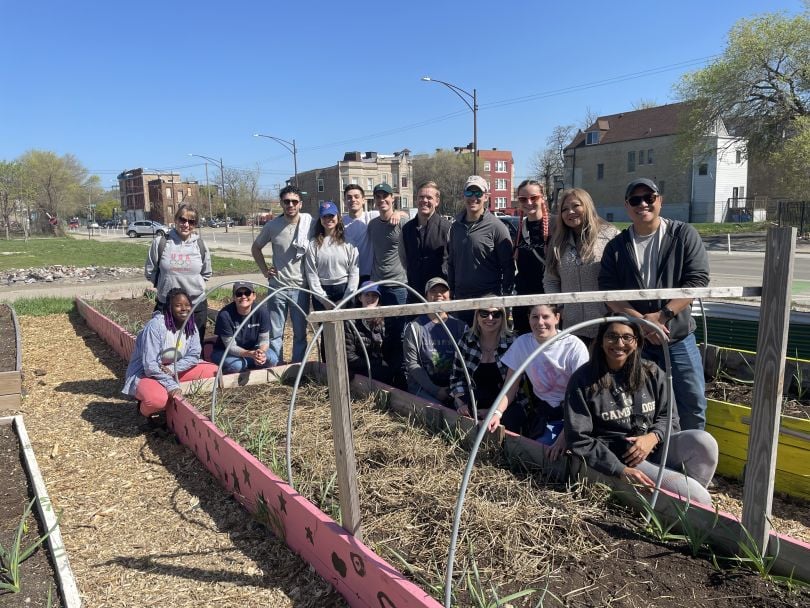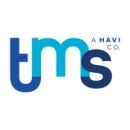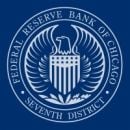Recent studies have shown that meaningfulness impacts job satisfaction more than any other aspect of work – including pay, job conditions and opportunities for advancement. We humans want to know that what we do makes a difference.
Employers know this. “Mission-driven” has become such a familiar way of describing a company that the phrase has come close to losing its meaning. But being mission-driven requires more than simply self-identifying that way. How can job seekers figure out whether or not prospective employers are aligned with their mission in practice or just talking a big game?
Built In Chicago sat down with two leaders to hear their best practices for learning about mission-driven approaches.
Sandra Pesic, information security and data privacy officer at the Federal Reserve Bank of Chicago, said that connecting with current and former employees of an organization is the best way to suss out whether a company’s practices match their public mission.
Malavika Rajkumar, senior manager for global sustainability at tms, advised job seekers to be bold in their interview conversations. “Seek both the show and the tell,” she said, encouraging interviewees to ask probing questions that get to the heart of the matter.
Whatever tactic works best, finding work that aligns with personal values is deeply important. “Working for an organization you are proud of is critical for maintaining a long, healthy relationship with your own career,” said Pesic. This advice from leaders in truly mission-driven organizations can help job seekers find just that.
tms is a global company uniting technology, marketing and sourcing to drive transformational change.
What is your company's mission? What problem are you solving in bigger and better ways?
I joined HAVI, tms’ parent company, to be part of setting a different approach to corporate social responsibility. Contributing to a holistic strategy and ensuring that efforts would go beyond words on paper truly intrigued me.
I joined HAVI, tms’ parent company, to be part of setting a different approach to corporate social responsibility.”
Though closely related to our mission, our purpose ("we reimagine the connections between people and products to create a better future") establishes inspiration but isn’t enough to spark change on its own.
In 2021, we unveiled Better Future Blueprint, a comprehensive framework for social and environmental responsibility and a pivotal component of our corporate narrative. It’s our way of committing to propelling CSR to greater heights while honoring our roots and bolder aspirations to make a lasting positive impact on the world.
With regulatory changes, financial considerations, evolving client and customer demands and preventing greenwashing and green hushing still ahead, unknowns remain and no one company can make real progress in a silo. BFB acknowledges that upfront and seeks innovation and collaboration with our suppliers and clients to address real issues, develop solutions and drive shared agendas with a focus on our Scope 3 emissions.
How does your mission help the business stay on track?
As a company with distinct business units — tms, Stanley and HAVI Supply Chain — HAVI’s corporate narrative, which includes our purpose, values and Better Future Blueprint, provides a great guidepost for all business units to build upon.
At tms, our ambition is to help some of the world’s most beloved brands thrive responsibly. By harnessing our superpower, The Power of And, we help large, complex organizations thrive with industry leading data informed marketing and sourcing solutions.
To stay on track, we push all areas of our business to embody the overarching company purpose while still giving each one the autonomy to make it real to their teams and clients.
Additionally, we align our purpose with our strategy. Our foundational strategies consider how we build upon our existing relationships, find balance between being opportunistic and focused for future growth, and ensure our organization’s underpinnings of technology, people, processes and communications are fit for purpose. Drawing that connection is the start of the journey, one that we continue by illustrating how our business goals align to our teams’ daily work.

How can jobseekers cut through the fluff to determine whether a company has a mission worth supporting?
Seek both the show and the tell.
For someone like me, an Asian-American woman with ambitious career goals, DE&I mattered. A glance at the company's website revealed a leadership team that didn't reflect my own identity.
Instead of dismissing them, I used the interview process to probe and question. I wasn’t looking for the perfect answer, but wanted honesty. They acknowledged ongoing efforts, changes initiated and existing gaps. This was the "show and tell" I needed to feel confident in aligning myself with the company. And I’m glad I did, because they’ve made great progress in areas I value.
Ask questions that matter most to you during your interviews. But don’t stop there. Sometimes, the most compelling answers come from current employees and following the data.
Leverage LinkedIn to hear how current employees find meaning in their work. Check out the company's sustainability reports. These combine storytelling with data, a great avenue to gauge whether words on paper align with real actions and progress or not. Consider reviewing a company's Carbon Disclosure Project report, which includes scores about transparency and performance on climate change.
Federal Reserve Bank of Chicago is one of 12 regional Reserve Banks that together serve as the United States’ national bank.
What is your company's mission? What problem are you solving in bigger and better ways?
In 1913, the Federal Reserve System was established as the central bank of the United States by Congress with three key objectives for monetary policy: maximizing employment, stabilizing prices and moderating long-term interest rates. Over the years, our duties have expanded to provide supervision and regulation of the banking system, financial services to government and institutions and economic research for public use.
We achieve all of this by facilitating a culture that encourages nation-wide collaboration across 12 reserve bank districts and valuing a wide range of different viewpoints. The biggest problem we’re currently solving is instant payment. Starting this year, we began offering the FedNow service for depository institutions, which operates 24 hours a day, 365 days a year.
How does your mission help you stay on track?
As the vice president for information security, I come into work every day with a sense of purpose and commitment knowing that my work helps protect The Federal Reserve. Indirectly, I help the Fed play a crucial role in maintaining stability within the US economy.
As the vice president for information security, I come into work every day with a sense of purpose and commitment knowing that my work helps protect The Federal Reserve.”
This stability resonates beyond national borders, influencing the world economy. Through our well-researched, strategic decisions and initiatives, we help establish a foundation of confidence and predictability, allowing businesses to thrive, investors to make informed choices and consumers to have faith in the economic system. This not only benefits the citizens of the US, but also contributes to a more secure and interconnected global economy, fostering international trade, investments and overall economic growth.
How can jobseekers cut through the fluff to determine whether a company has a mission worth supporting?
A company’s mission shapes its culture and provides purpose to employees. To assess alignment with your values, connect with current and former employees on professional networks for firsthand insights.
Another great way to determine whether a company has a mission worth supporting is during the interview process. Ask the interviewer(s) about the mission and values of the organization. Ask how the mission is integrated into their daily work and decision-making processes.
Additionally, consider the company’s public reputation by doing your research. Working for an organization you are proud of is critical for maintaining a long, healthy relationship with your own career.









